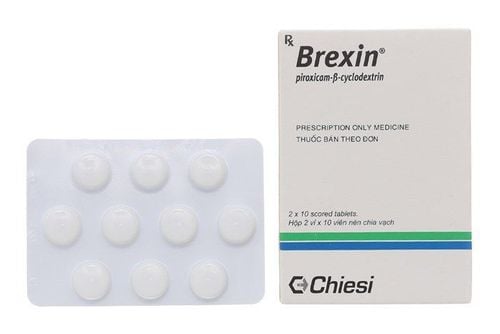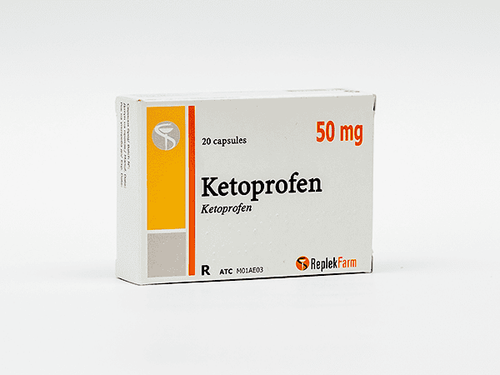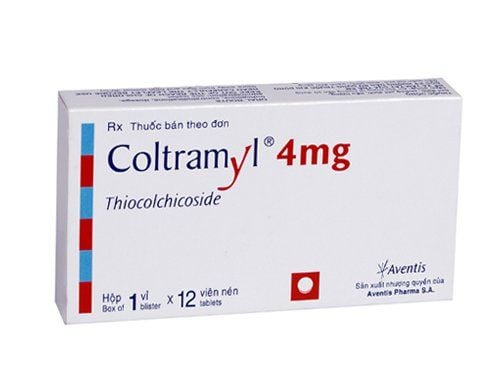This is an automatically translated article.
Body aches can be caused by many different things, such as infection, illness, or certain medications. Determining the exact cause of body pain will help you take early measures to control and treat the disease effectively.Answer to the question "why does the body hurt? " is:
1. Due to blood circulation problems in the body
If you feel pain in your arms, legs, or both, it could be because your muscles aren't getting the blood they need, causing claudication. At first, you may feel body aches during exercise. Over time, the pain can affect even when you walk or sit at rest. This condition, commonly known as arteriosclerosis, occurs when the tubes that carry blood to the muscles become blocked.2. Body aches from hypothyroidism Hypothyroidism is a condition in which your thyroid gland doesn't make enough of certain important hormones. Hypothyroidism can cause musculoskeletal pain, along with typical symptoms of the disease. In addition, hypothyroidism is also considered a major cause of body aches and pains and leads to memory problems, dry skin, thinning hair, high cholesterol or a slow heart rate.
To determine if you have hypothyroidism, your doctor may order a simple blood test. If hypothyroidism is diagnosed, your doctor may prescribe some medications to help replace the missing hormones.
3. Flu or some other infection When the flu virus attacks the body, it will cause symptoms such as fever, stuffy nose, and can cause you to have aches and pains all over your body, especially the muscles. on the back, legs and arms.
Flu usually clears up on its own after a week or so, but if your body aches, fever, or stuffy nose symptoms don't go away, you should see a doctor for treatment as soon as possible. In addition, you should also see a doctor if you have other health problems or have a cough that does not go away. Other infections can also cause body aches, including COVID-19 and HIV.
4. Medication Use Using statins to control high blood cholesterol can lead to side effects such as body aches. If you experience these conditions while taking this medication, talk to your doctor about switching to a more suitable medication.

Một số loại thuốc có tác dụng phụ dẫn tới đau nhức cơ thể
5. Lupus disease
One of the other causes of body aches is lupus. This is an autoimmune disease that can cause the immune system to function abnormally and attack the body's own tissues and organs.When lupus affects joints or muscles, it can lead to stiffness and pain when you move. Although there is no cure for lupus, medication and certain exercises can help control your symptoms.
6. Rheumatoid Arthritis Rheumatoid arthritis is also an autoimmune disease that mainly affects the joints and can lead to bone loss. In addition, it can also cause pain and inflammation throughout the body, causing the joints to swell into strange shapes, and cause aches and pains all over the body.
Medications and physical therapy can help relieve the symptoms of rheumatoid arthritis, but there is no cure. In certain cases, patients may need surgery to repair the affected joints.
7. Dermatitis This autoimmune disease can cause your muscles and joints to ache, along with red or purple bumps on your eyelids. In addition, dermatomyositis also creates nodules on the joints of fingers, elbows, toes, and knees and can cause dry skin, thinning hair, swelling or irritation of the skin around your nails. .
Dermatomyositis can be triggered by medication, an infection, or cancer. Currently, this disease has no definitive cure, but patients can relieve symptoms (including body aches) with the use of drugs and physical therapy.
8. Fibromyalgia This condition can cause pain all over your body, which mainly affects the muscles and joints, and causes problems with sleep, memory, and mood.
Fibromyalgia often occurs when the brain receives mild pain signals and mistakenly makes them worse, say researchers. In addition, the disease can also be triggered by certain medical conditions, surgery, or severe emotional stress. Medication, exercise, or yoga can help ease the uncomfortable symptoms of fibromyalgia.
9. Polymyositis Polymyositis usually occurs when something (such as a virus or an immune system problem) causes intense swelling or irritation in muscles throughout the body, especially especially in the abdomen, upper arms, shoulders, hips and heart. Over time, your muscles can begin to break down, causing symptoms like difficulty breathing or swallowing.
Your doctor may recommend some medications to reduce inflammation or calm the immune system, or other physical therapy methods to help you relieve body aches and regain muscle strength.
10. Chronic Fatigue Syndrome The main symptom of this syndrome is extreme fatigue with no known cause. It can get worse with exercise or mental stress. Rest does not make fatigue better.
In addition, chronic fatigue syndrome can also cause you to experience body aches, muscle aches, memory problems, joint pain, sore throat, headaches, and inability to sleep well. Currently, there is no cure for chronic fatigue.

Hội chứng mệt mỏi mãn tính cũng có thể là nguyên nhân khiến bạn bị đau nhức mỏi toàn thân
11. Meningococcal fever in the mountains
Meningococcal fever is caused by the bacterium R. rickettsii, which often includes flu-like symptoms (fever, chills, headache, nausea, insomnia, and body aches). A non-itchy rash can also appear on your ankles and wrists a few days after the illness.Meningococcal fever should be treated as soon as possible with antibiotics. If left untreated, this disease can lead to pneumonia, brain, heart, and kidney failure.
12. Lyme disease Bacteria from flea bites can cause Lyme disease. The disease usually has symptoms such as fever, fatigue, chills, headache, and body aches. Another sign of Lyme disease is a bull's-eye rash, which can develop within a few days of illness and be up to 12 inches wide.
The rash may appear as multiple nodules but not necessarily near the flea bite. Lyme disease is usually treated with antibiotics, but some people still experience body aches and fatigue after finishing the medication.
13. Ankylosing spondylitis This is a type of chronic arthritis that causes inflammation of the spine, sometimes including the hips, chest, and knees. Ankylosing spondylitis can cause stiffness in the joints, especially in the morning. More severe cases can lead to a loss of motion in the back because the bones of the spine grow together. In addition, this type of chronic arthritis can also affect the neck. Ideally, you should talk to your doctor when you notice any symptoms of the disease. Early treatment can help keep the condition under control.
In short, each person needs to forge the habit of periodic health check-ups to both screen for diseases and help improve treatment effectiveness when necessary. Currently, Vinmec is implementing a lot of general health checkup packages suitable for each age, gender and individual needs of customers with very preferential price policy, including:
Children's general health checkup package em Standard general health check-up package Special general health check-up package VIP general health check-up package Diamond general health check-up package The advantage of Vinmec's health check-up packages is that customers will be screened , health screening by a system of modern equipment to help support the best diagnosis today such as PET / CT, MRI, CT 640 machines, the world's leading advanced ultrasound machine system, laboratory testing system After a general examination, if any diseases are detected, customers can use services from other specialties at the hospital with outstanding quality of treatment.
Please dial HOTLINE for more information or register for an appointment HERE. Download MyVinmec app to make appointments faster and to manage your bookings easily.
Reference source: webmd.com












